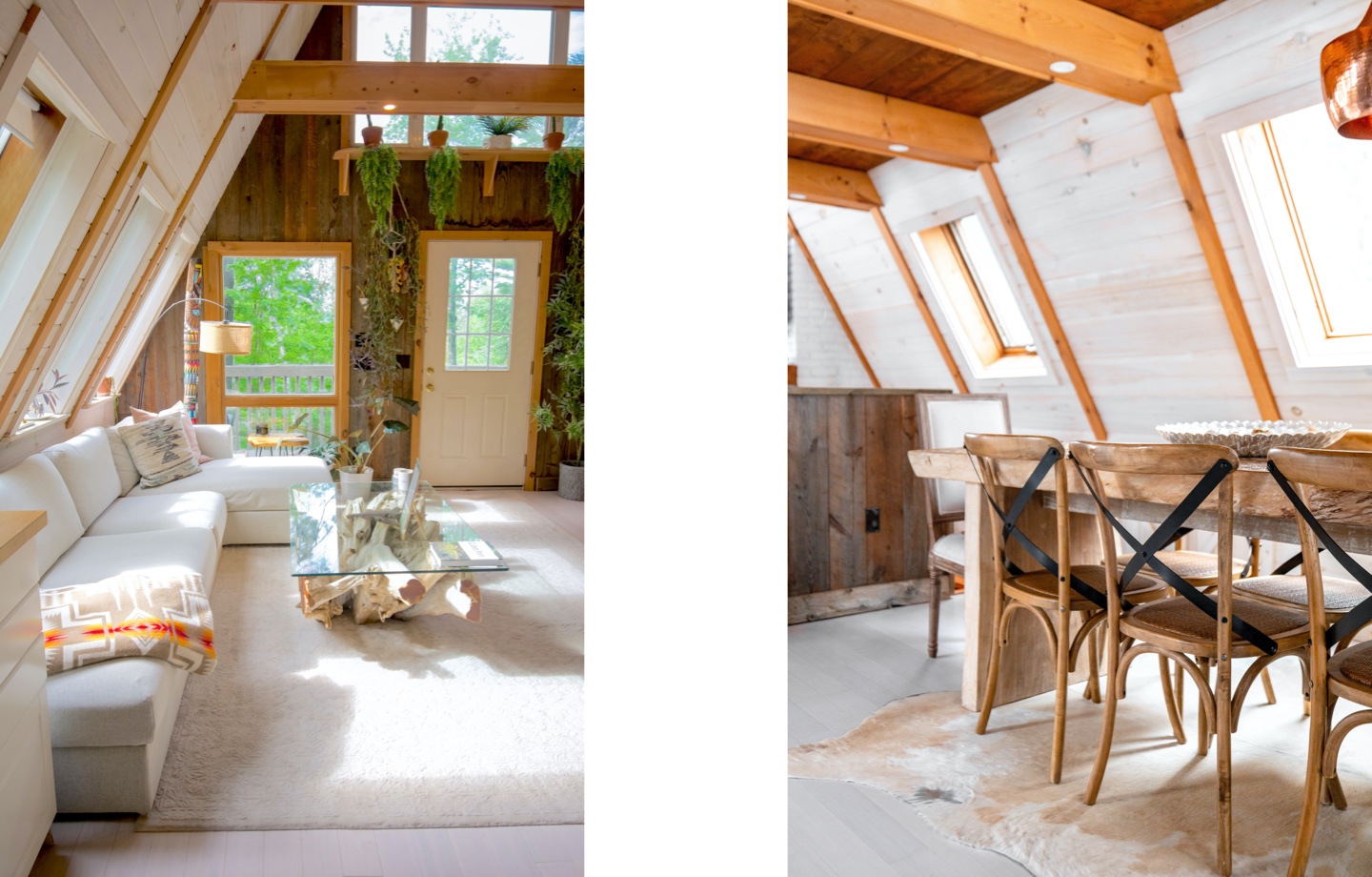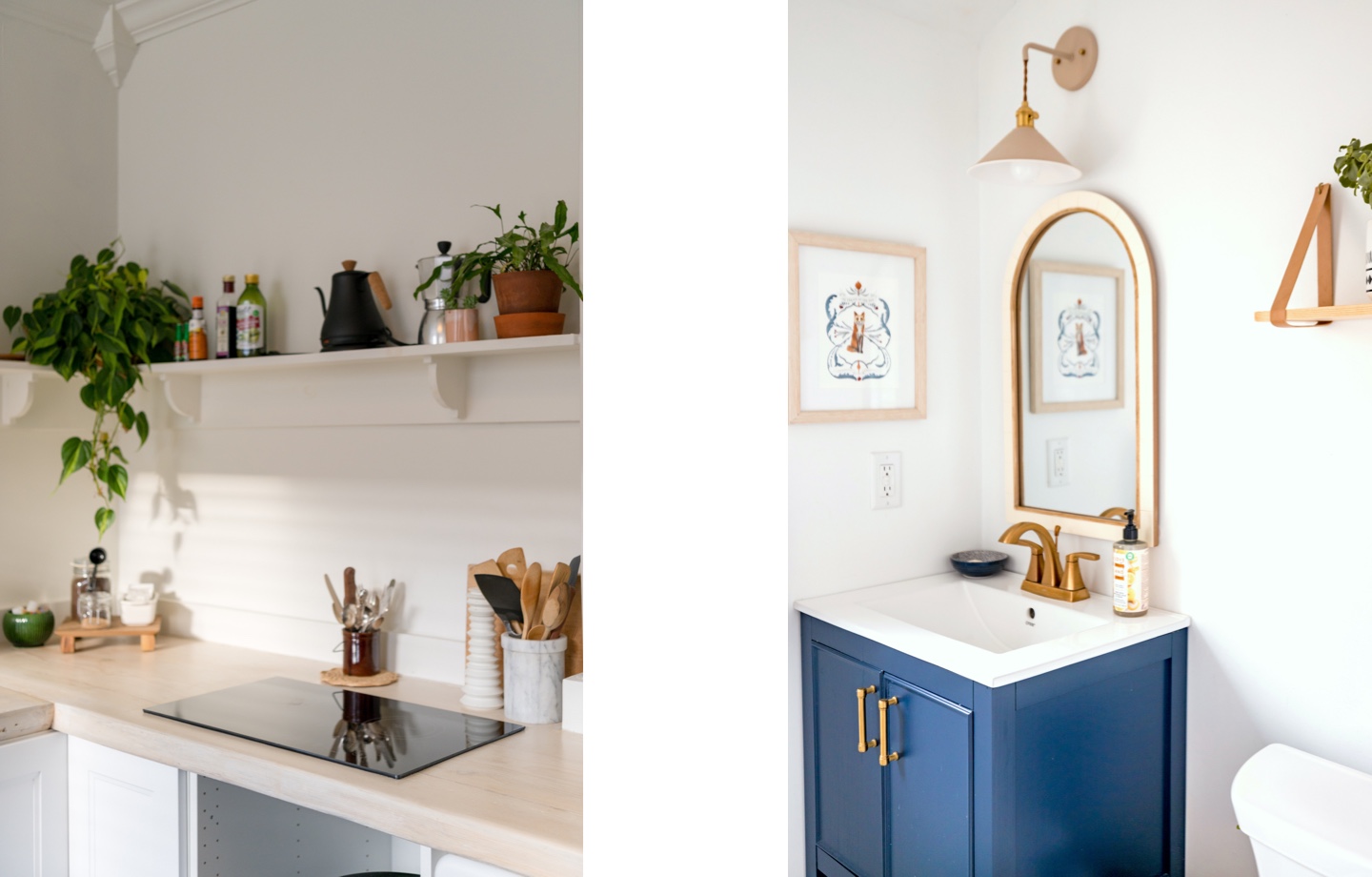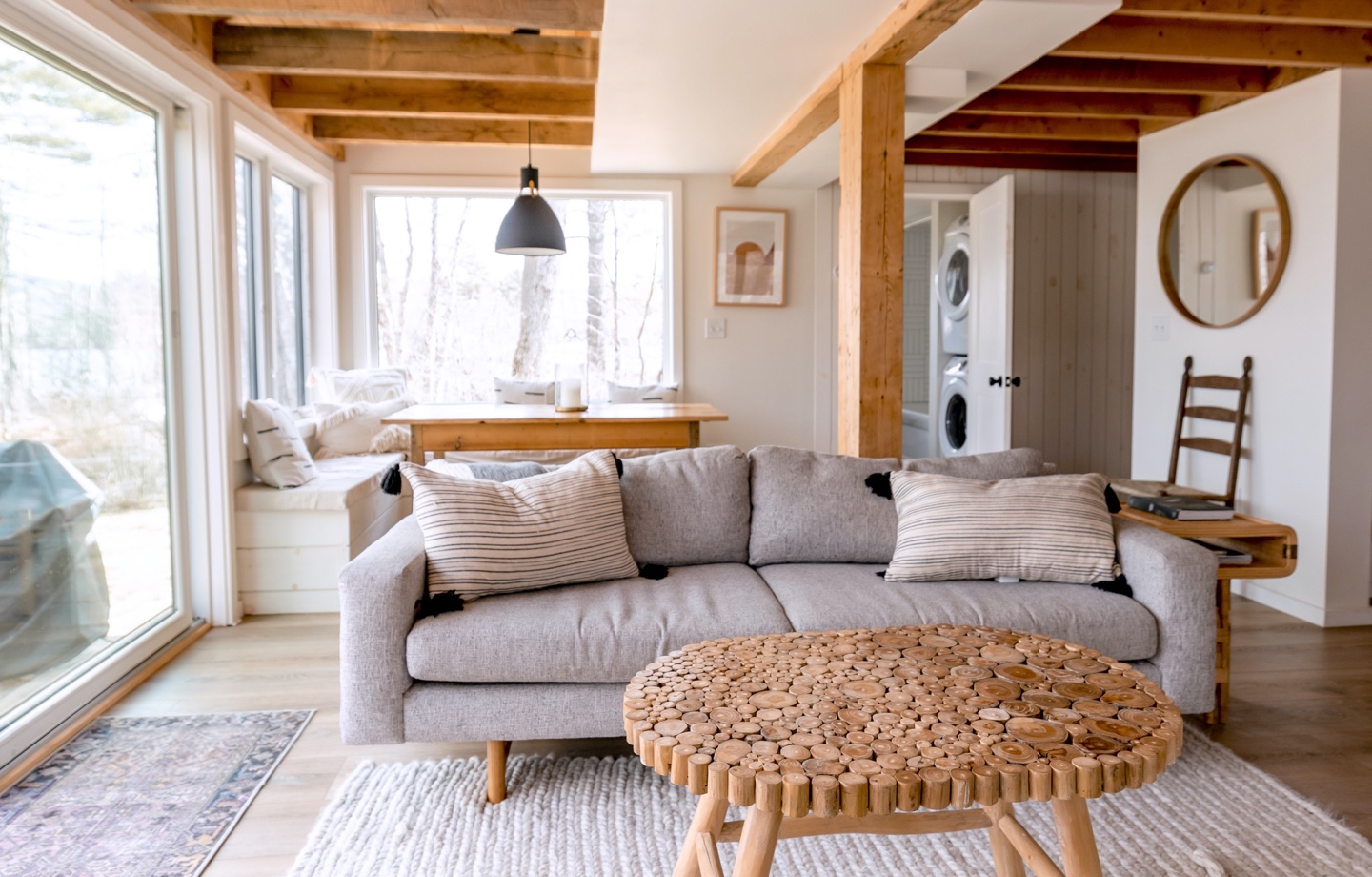Start the year off with a clean, organized, decluttered space. Here’s how.
With the new year around the corner, many people are busy setting intentions, drafting resolutions, and preparing for the months ahead. But there’s one — often overlooked — end-of-the-year task guaranteed to set you up for success: decluttering.
A fresh start is hard to come by if piles of paper and old statements are strewn about your workspace, if you don’t even know what’s in the “catch-all” drawer (we all have one), or if your closets are so full it’s hard to find anything. Instead of ignoring these areas and living with the discomfort, make it a point to declutter your home before the new year.
Aside from the obvious organizational benefits — there’s no denying how nice it is to know exactly where everything is — there’s positive psychology behind having a decluttered space. Studies show that clutter can increase stress for individuals and families. Once you’ve tackled the mess, everyone can breathe a bit easier.
In addition to relieving stress, reducing clutter in the home supports positive decision-making and self-efficacy, helps clear the mind, and reduces anxiety. By getting rid of old mail, putting things where they belong, and streamlining closets and other areas that need tidying, you’ll be better able to enjoy and relax within your space.
Here are five ways to declutter your home for the new year.

Read more: How to Turn Anxiety Into a Positive
We all have what is known as a clutter personality. Most people fall into one of three categories: too many extras, must save everything, and overwhelmed. Maybe you’re in the too many extras camp and repeat buy things you already own because you can’t find items when you need them. Or perhaps you fall in with the must-save-it-all crowd that fears what will happen if they toss out something they might need someday. Or you’re simply so stressed by the clutter, you put off tackling it all together.
Determining your clutter personality will allow you to move forward with a strategy.
For example, the person who keeps things “just in case” may find it easier to part with things when they picture how much someone else would enjoy them. Whereas implementing organizational tools will help the person with too many of the same things. Whatever your clutter style, pinpoint it, bring in help if needed, and make a plan.
Often the easiest way to begin decluttering is to remove the obvious trash first. Go room by room and get rid of old receipts, papers, stray clothing tags, empty or near-empty toiletry items (these can often be recycled), and anything else that’s simply garbage. Removing the unnecessary will make the process of sorting through the other stuff much easier.
While you’re collecting trash, create a designated spot for paper and catalogs. Paper is often the number one clutter item that accumulates in the home. Determine which bills and statements can be converted to digital delivery to save yourself a headache — and a few trees while you’re at it — and unsubscribe from catalogs you don’t want to reduce the clutter that makes its way into the house in the first place.
If you only have a few areas to declutter, you can likely conquer the task in a single afternoon. However, if the job is bigger — say, decluttering an entire home or apartment — you may want to break up the task into smaller increments to make the process less overwhelming. You can do this by decluttering your space room by room and closet by closet. If you have other family members you can enlist, task them with an area, and get to work.

Read more: How to Stop Procrastinating
As you declutter, you’ll likely come across some perfectly usable items you no longer use. Instead of throwing them away or keeping them, create a donation pile you can add to throughout your decluttering project.
If you have a difficult time parting with items you know you no longer need, just imagine how much someone who will actually use the item will appreciate it. Once your decluttering is complete, immediately bring those items to your local donation drop-off. It’s important to get items out of your home so you’re not tempted to keep anything “just in case.”
Creating homes for everything will make it that much easier to stay organized moving forward. For example, jackets belong in the closet or hung up on a hook — not slung over the back of a chair. The same goes for the other items in your space. If something doesn’t have a home — create one, or consider parting with the item. Ask yourself if the particular item is necessary to begin with.

Read more: How to Donate or Recycle Mattresses, Bedding, and Towels
Have feedback on our story? Email [email protected] to let us know what you think!

Shop Pillows
The Essential Organic Pillow Collection
Gentle, breathable, non-toxic support.




